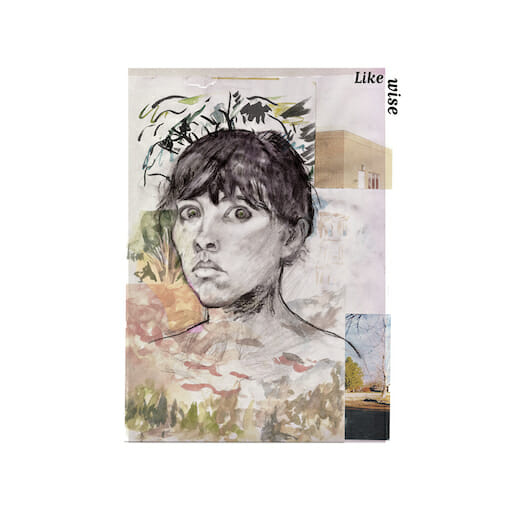Jagged Pieces Form a Beautiful Whole on Frances Quinlan’s Likewise
On her solo debut, the Hop Along frontwoman takes us on a lovely journey

The whole idea behind releasing or performing a cover is to add your own spin to it: Otherwise, what’s the point? But rarely does an artist deconstruct and completely transform a beloved song to the extent that Frances Quinlan does with “Carry the Zero,” the Built to Spill classic that landed at number two on Paste’s best songs of 1999 list.
It’s quite incredible that Quinlan managed to make the song so unrecognizable that I listened to the whole thing without even realizing it was a cover of the legendary Boise, Idaho indie band’s biggest hit. The words “I’m not knocking,” even when spoken out of context, will get “Carry the Zero” stuck in one’s head for hours. Quinlan’s ability to bend the track to her will—featuring a bouncy synth later complemented by twisted, harsh guitar screeches—is ingenious and indicative of Quinlan’s ability to experiment outside of her main sound. It’s one of many moments on Likewise that prove not only that her solo career deserves to exist, but also that she’s able to thrive without her longtime bandmates (or at least without them in their full roles).
Hop Along actually began as a solo project in the mid-2000s, but by the time the band started to take off with 2012’s Get Disowned, it was a full outfit, complete with Quinlan’s brother Mark on drums, bassist Tyler Long and multi-instrumentalist Joe Reinhart, who has produced each of their records since. With each Hop Along release, as Quinlan mentioned in her recent Paste session, the four members act as a collective, workshopping the songs together after the demo stage.
But on Likewise, Quinlan hashed everything out with just Reinhart in the studio, giving the tracks more space to breathe than ever before. Most of the songs here feel a bit rougher around the edges, which is partly what gives them so much charm. Quinlan has long had one of the best voices in indie rock, so why not essentially subtract everything else and give it 100 percent of the spotlight?
-

-

-

-

-

-

-

-

-

-

-

-

-

-

-

-

-

-

-

-

-

-

-

-

-

-

-

-

-

-

-

-

-

-

-

-

-

-

-

-








































